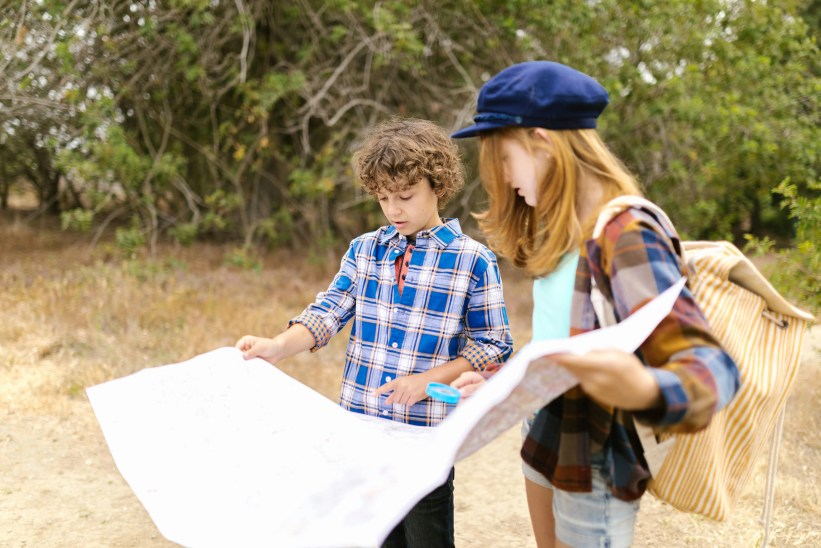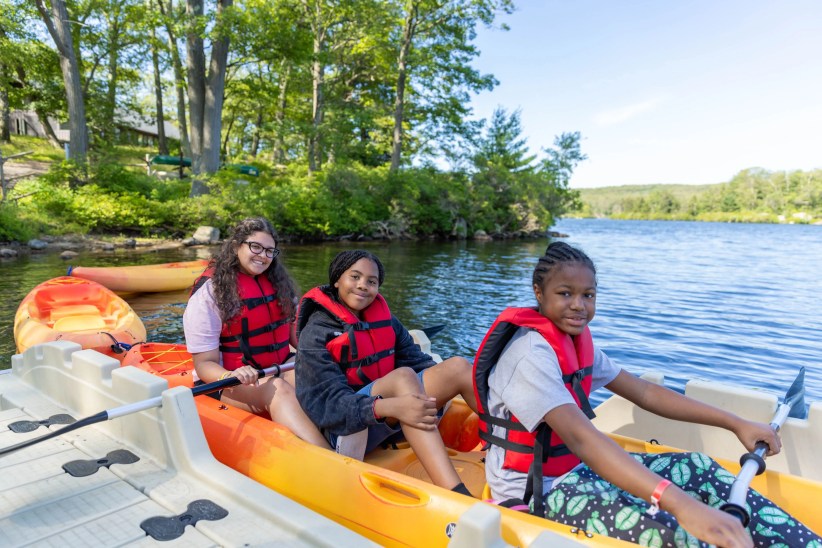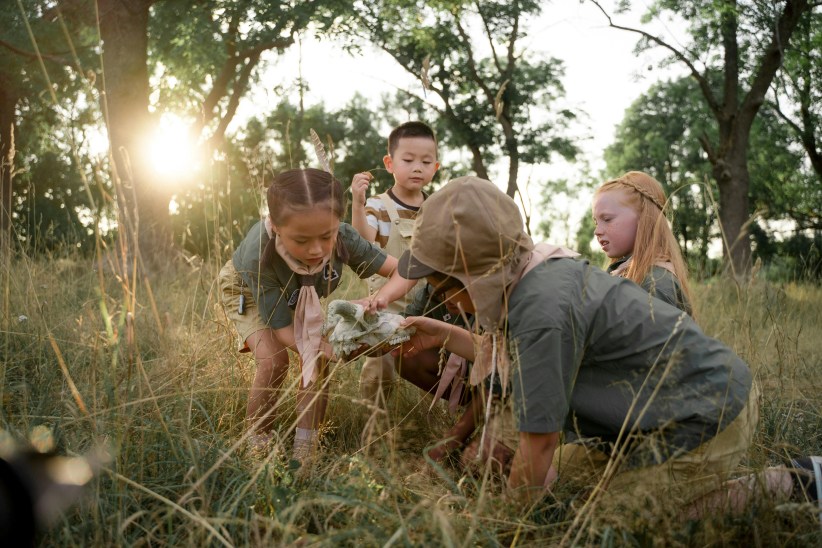 Your child going to summer camp for the first time is a big step in his or her life. While it is an exciting time, your kid going to camp may cause some nervousness for you both. So how do you know what is the right time to send your child to camp?
Your child going to summer camp for the first time is a big step in his or her life. While it is an exciting time, your kid going to camp may cause some nervousness for you both. So how do you know what is the right time to send your child to camp?
“When considering camp, you want to make sure you look at your child with an objective eye,” says Adam Weinstein, Executive Director of the American Camp Association, New York and New Jersey. “How do other people describe your child to you? How well does your child interact with friends and adults? What activities does your child enjoy? Does your child need a great deal of nurturing or do they tend to be independent? Answering these questions will help you figure out if your child is ready for camp and which camp environment is right for him or her.”
Interest & Readiness
How did your child become interested in going to camp? “Talk to your child in order to assess his or her readiness,” says Ross Coleman, Camp Director of Coleman Country Day Camp. “Does your child sound excited about the adventure? Is he or she comfortable separating from you for segments of time? Does your child enjoy playing with other children? Does he or she thrive on achieving milestones of independence?” Answering these questions will help you determine if your child is both interested and ready for camp. Remember, the decision to go to camp should be made together. Keep in mind that the more involved children are in the process, the more ownership they feel. This helps ease concerns about camp, and can help make a child’s camp experience more successful.
Age
You want to take into account your child’s age when considering camp. Day camps are designed for children 3 years and up. Children can go to sleepaway camp at the age of 7. But families should keep in mind that just because a child is 7 years old, doesn’t mean he or she is emotionally ready for sleepaway camp.
Day Or Sleepaway
If you are considering sleepaway camp, make sure your child has had successful overnights away from home with friends and relatives. Were these overnights positive experiences? You want to make sure your child is mature enough to go away for an extended period of time and that he or she can do certain things independently like shower, get dressed and brush their teeth.
Expectations
You should learn about the camp program ahead of time and create positive expectations for your child. Talk about camp throughout the year. “The known is comforting to a child, so take a tour of the camp the summer beforehand,” says Ann Young, Director of Camp Hilltop in Hancock, NY. “Go into a cabin and meet and talk to the directors. Touring will build your child’s excitement about camp while familiarizing them with the camp program, activities, camp layout, the cabins and the staff.” Many overnight camps also offer Rookie Days which give future campers a chance to experience camp in session by joining in on camp activities for the day or for a weekend. The more a child feels involved in the process of choosing a camp, the more successful their camp experience is likely to be.
Positive Messages
It is important for parents to share positive messages about summer camp. It is common for a child to have some apprehension as the first day of camp approaches—encourage your child to talk about these feelings. Let your child know you are confident in his or her ability to have a wonderful summer camp experience.
EXTRA: How To Ease Your Own Transition
- Make sure you talk to the camp director. When you are choosing a camp, ask the camp director questions and get to know him or her. Ask the director to describe the camp’s philosophy and how the staff implements it. Make sure the philosophy reflects your own family’s value system. Find out about the camp director’s background and the staff training. Ask about the age of the counselors and the counselor to camper ratio. Talking to the camp director and learning about the camp program will help you feel more comfortable and will ease any nervousness you may have.
- Keep in mind that camp directors have your child’s best interests in mind and the skill to guide your child towards an appropriate level of independence, self-confidence and success.
- Remember that kids often get over the adjustment to a new experience and a new environment before parents get used to the next stage of development. While your child is adjusting to camp, don’t make pick-up deals and offer to rescue your child from camp. Instead, offer positive encouragement that you know he or she will have a successful summer.
- If your child is at sleepaway camp, don’t focus too much on correspondence from camp in the first few days of camp. If you receive a discouraging phone call or a letter from your child, remember that like any new experience, adjusting to camp may take a few days and that severe homesickness is rare. Encourage your camper to enjoy all the exciting camp activities that camp has to offer and remind him or her of all the wonderful aspects of camp.
- When your child is at camp, allow him or her to solve their own problems or ask a counselor for help. Camp is a setting that allows your child to experience the real world in a safe environment. Kids learn quickly to rely upon themselves and the camp staff they trust.
BIG TIP: Essential Resources For Selecting A Camp
New York Family has several wonderful resources for helping parents find the right day camp or sleepaway camp for their child.
The Ultimate Guide To Summer Camp
Every February we publish our annual camp guide, offering a menu of stories on researching camps and on the camp experience. The 2012 Guide covers everything from interviews with camp directors to personal accounts of the camp life from an owner, a counselor and a camper.
TheRightCamp.com
This year we also launched the popular website therightcamp.com, which allows families to do a detailed online search for camps that are a good match for their child. Simply check off your preferences (which range from camp type to dietary restrictions) and then explore the camps that meet your criteria, each with a page full of essential info, photos and videos.
Camp Fairs
From early winter to early spring, New York Family joins forces with The American Camp Association of NY/NJ to produce the city’s largest camp fair series. Informative, fun and free, the Camp Fairs allow parents and children to explore a big variety of camps and meet with many of their directors—all in one convenient session. Check back at newyorkfamilycamps.com for a full calendar for 2012-2013 and to register for a Camp Fair.
Jess Michaels is the Director of Communications for the American Camp Association, New York and New Jersey.
For more stories about camp life, see the latest edition of The Ultimate Guide To Summer Camp.






















